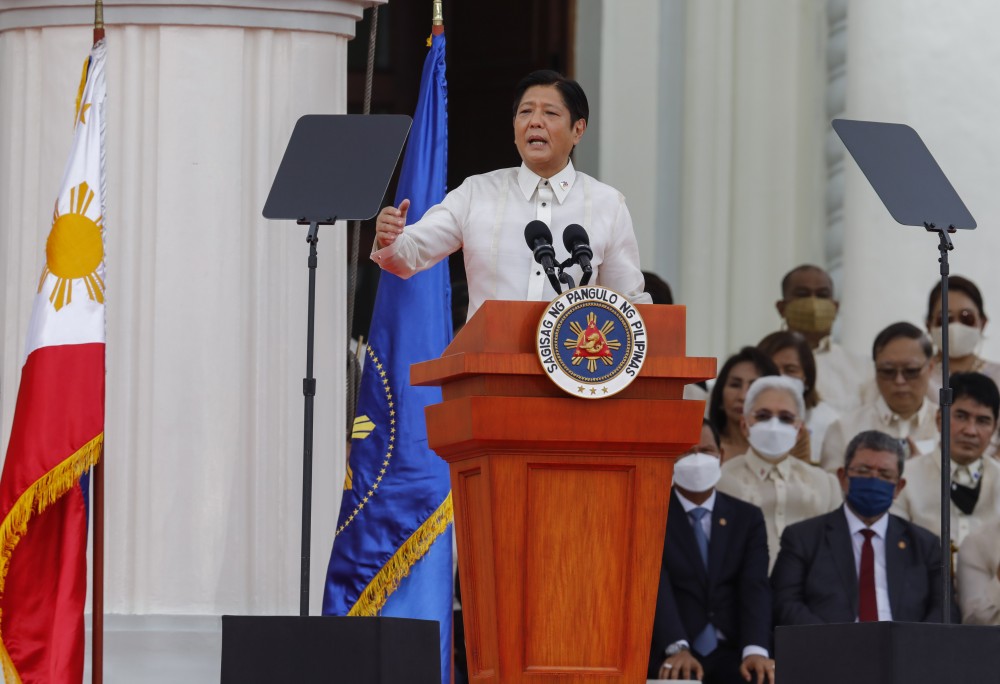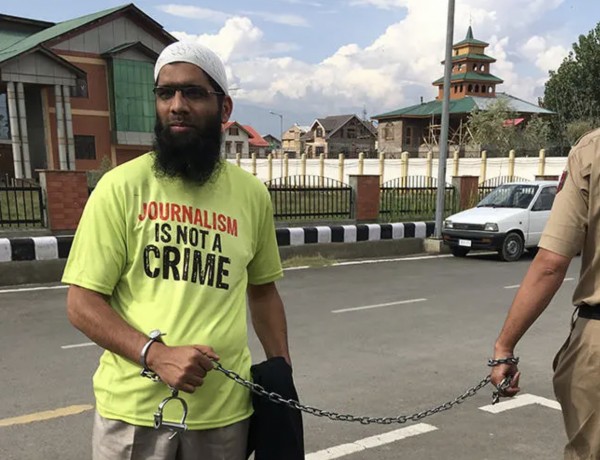One year since Ferdinand Marcos Jr. took office as president, little progress has been made in improving press freedom in the Philippines despite his initial promises to protect journalists’ rights. The IPI global network therefore calls on the Marcos Jr. administration to uphold its pledge to better protect the press by taking concrete action to ensure the country’s journalists can work freely and safely.
The election of Marcos Jr. — son of former dictator Ferdinand Marcos — held the potential for an improved environment for press freedom, relative to his predecessor, Rodrigo Duterte. Duterte was openly hostile toward journalists, whom he called “corrupt” and “not exempted from assassination”. During his term from 2016 to 2022, 20 journalists were killed, all with complete impunity.
The Duterte government often targeted and attacked journalists and critics, including Nobel Peace Prize laureate and IPI Executive Board member Maria Ressa and her online outlet Rappler. Ressa and Rappler faced relentless harassment and intimidation, ranging from online attacks to arrests and legal charges. Ressa was hit with a series of civil and criminal cases, including charges of tax evasion and three cyber libel cases.
While the anti-press rhetoric coming from the country’s top office has lessened in the year since Marcos Jr. took office, violence and attacks on the press have continued unabated. Three journalists have been killed — Renato “Rey” Blanco, Percival “Percy Lapid” Mabasa, and Cresciano “Cris” Bundoquin — thus far since Marcos Jr. took office as the government continues to do too little to combat the impunity that fuels journalist murders. Journalists have also continued to face legal attacks, threats and harassment, from cyber libel charges to so-called “red-tagging”, which refers to labeling journalists who are critical of government policies as communist or rebel supporters.
The Philippines-based Center for Media Freedom and Responsibility (CMFR) reported 75 press freedom violations between June 30, 2022 and April 30, 2023, the first ten months of Marcos’s presidency -— which the organization reports is higher than the number of attacks or threats documented in any one-year term under Duterte.
A lasting ‘culture of fear’
This comes despite initial vows by Marcos Jr. to improve protections for the press. Days after the murder of veteran radio broadcaster Percival Mabasa in October 2022, Marcos vowed told members of the press, “Under my lead, we will support and protect the rights of the media as they efficiently perform their duties.”
National Union of Journalists of the Philippines (NUJP) Chairperson Jonathan de Santos told IPI that the overall media landscape has “generally been friendlier,” citing the end of a ban on Rappler reporters covering the Palace and access to more presidential events for journalists.
However, Melinda Quintos de Jesus, executive director of CMFR, also said that media under the new administration “still operates in a ‘culture of fear’ instituted by his predecessor,” adding: “There are no new critical voices raised to question, to probe, to check statements, to question actions and policies.”
In addition, key cases against journalists and media houses initiated under Duterte have continued under the Marcos Jr. administration. Frenchie Mae Cumpio, who was arrested in February 2020, remains in pre-trial detention on charges of illegal firearms possession and terrorism financing, while Maria Ressa’s appeal in her cyber libel case was rejected in September and Rappler was ordered to close in October.
Under Duterte, ABS-CBN, the largest media conglomerate in the Philippines, was forced to shut down its broadcast operations in May 2020, after the National Telecommunications Commission allowed its franchise to expire and its renewal was denied.
Three years later, under Marcos, the network still has not been reinstated on a national level. While their content airs on nearly 50 channels, the reach is about one-third of what it was prior to the closure. De Jesus also described to ABS-CBN the “chilling effect” of the closure on other newsrooms due to the threat of losing their own licenses.
Restrictions on press, targeted harassment of journalists normalized
Roby Alampay, founder of the independent media startup PumaPodcast, told IPI that many of the same tactics to control the country’s media used by Duterte have been normalized by the Marcos Jr. administration.
He said that Marcos Jr. represents the status quo for the media situation in the Philippines today where “violence had long been normalized, the law has been weaponized, public information is difficult to access (and actually legally restricted) and over and above the harassment of individual journalists whether in their communities or online, media at every level face capture.”
According to Alampay, “President Marcos himself has time and again been on the wrong side of matters pertaining to transparency, access to information or pushing for an environment conducive to reliable information”, he said. “He has severely limited his availability to independent journalists and, as anticipated, has shown little interest to liberalize public access to information or to counter the use and influence of weaponized disinformation.”



